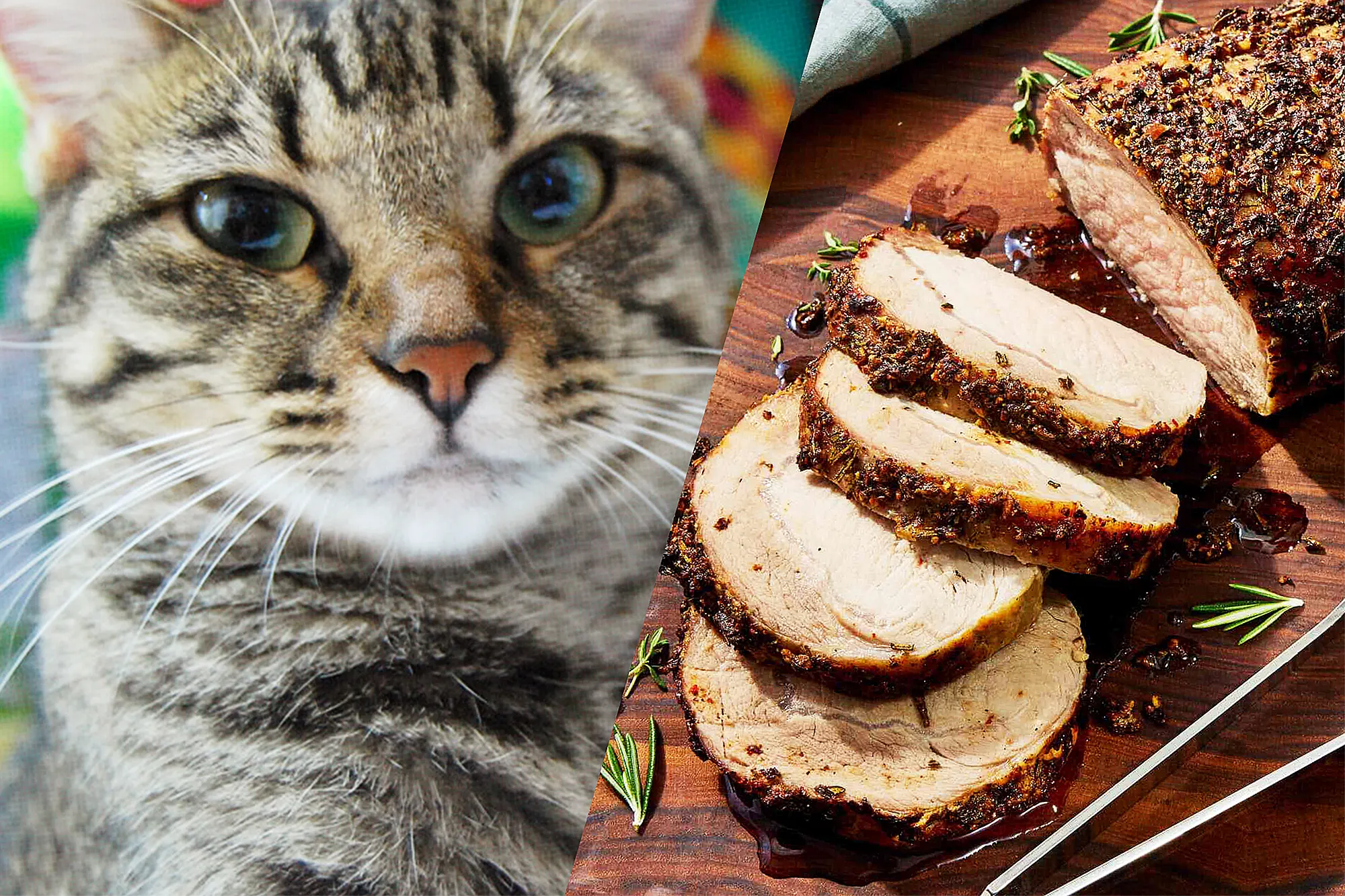Picture this: You’re sitting down for dinner, enjoying a succulent pork dish after a long day. Suddenly, your cat comes up to you, eyes wide and tail twitching, asking for a bite. It tugs at your heartstrings, but before you decide to share your pork dinner with your cat, you decide to quickly Google and find out if it is safe for them. In this blog post, we’ll take a closer look at this question and explore the potential benefits and risks of feeding pork to your cat.
Can Cats Eat Pork?
The short answer is yes, cats can eat pork. Cats are known to be obligate carnivores, which means that they require a diet that is primarily made up of meat. Pork is a good source of protein, and it contains essential vitamins and minerals that are important for your cat’s overall health. However, it is important to note that pork should not make up a significant portion of your cat’s diet. Cats require a diet that is high in animal protein, and pork is not as nutritionally complete as other types of meat, such as chicken or beef.
Benefits of Feeding Pork to Cats
While pork should not be the mainstay of your cat’s diet, there are some benefits to feeding your cat small amounts of pork as part of a balanced diet. Some of the potential benefits of feeding pork to cats include:
- High Protein Content: Pork is a good source of protein, which is essential for your cat’s overall health. Protein helps to support healthy muscle growth and repair, and it also helps to maintain a healthy immune system.
- Vitamins and Minerals: Pork contains essential vitamins and minerals, including vitamin B12, zinc, and selenium, which are important for your cat’s overall health and well-being.
- Variety in Diet: Feeding your cat a variety of meats can help to prevent boredom and provide your cat with a range of different nutrients.
Risks
While there are some benefits to feeding pork to cats, there are also some risks that cat owners should be aware of. Some potential risks of feeding pork to cats include:
- Digestive Upset: Some cats may experience digestive upset, such as vomiting or diarrhea, when they are introduced to a new type of food, such as pork.
- High Fat Content: Pork is a relatively fatty meat, which can contribute to weight gain and other health problems if fed in excess.
- Risk of Parasites: Raw or undercooked pork can contain parasites such as Toxoplasma gondii, which can be harmful to both cats and humans.
- Risk of Pancreatitis: Feeding your cat a diet that is high in fat can increase the risk of pancreatitis, a potentially life-threatening condition that affects the pancreas.
Conclusion
Cats can eat pork in moderation as part of a balanced diet. Pork can provide essential nutrients and variety in the diet, but it should not make up a significant portion of your cat’s diet. It is important to choose lean cuts of pork and to cook the pork thoroughly to reduce the risk of parasites. If you have any concerns about your cat’s diet or health, it is always best to consult with your veterinarian.
